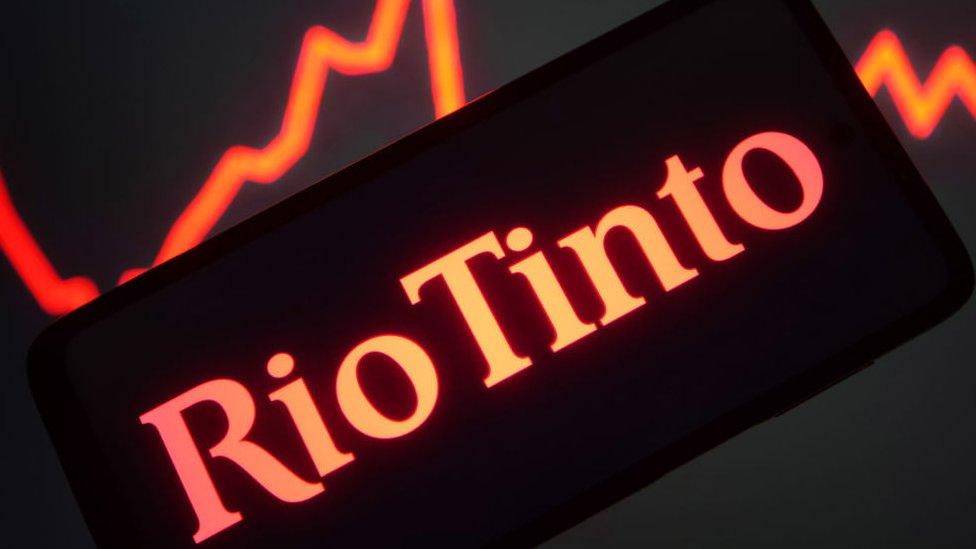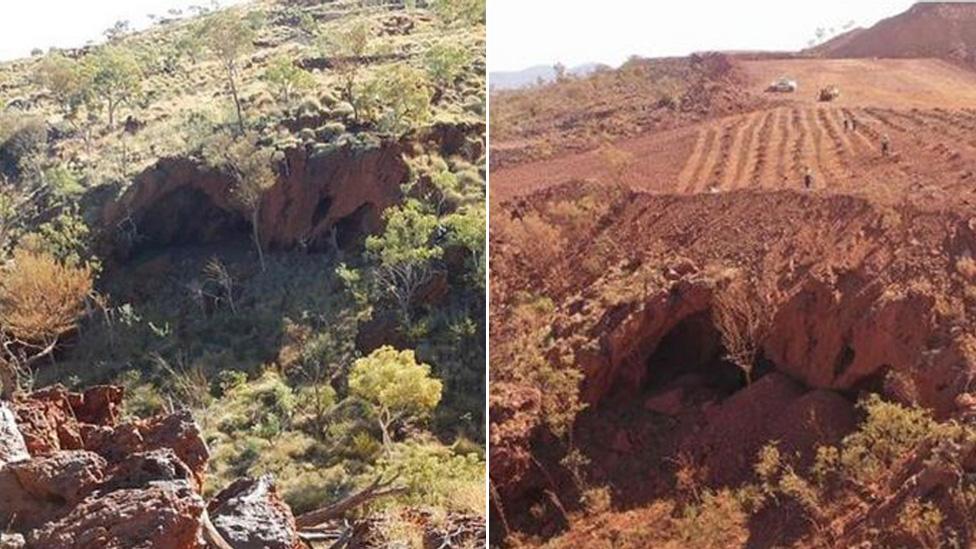Rio Tinto says 21 female workers reported sexual assaults
- Published

Rio Tinto's workplace culture review has found systemic problems of sexism, racism and bullying
Anglo-Australian miner Rio Tinto says 21 of its female employees reported an actual or attempted rape or sexual assault at work in the past five years.
The mining giant - which operates in 35 countries - did not provide details on the incidents or where they took place.
But the numbers were revealed in a wider workplace culture report that found sexism, racism and bullying systemic across the firm.
It follows recent scrutiny over the treatment of women at mining camps.
Last year, Western Australia's state government launched an inquiry into the issue following a number of court cases and media reports.
Rio Tinto is one of the biggest operators of remote mining sites in Western Australia. It told the inquiry last year it was aware of problems but did not provide details.
Around the same time, Rio's competitor, BHP, told the inquiry it had fired at least 48 workers for sexual assaults and harassment at its mining camps since 2019.
91at BHP, including six substantiated sexual assaults and 73 of harassment (2019-21)
53at Rio Tinto, including one substantiated sexual assault and 29 of harassment (2020-21)
31 allegations at Fortescue Metals of sexual harassment (2020-21)
Both companies - among Australia's richest - run large operations in the state's remote Pilbara region, to unearth iron ore, copper and other minerals.
Thousands of workers are flown in each season and housed in village camp-style accommodation. Critics have long raised concerns about the hard-drinking, male-dominated culture that has been allowed to flourish at these sites for years.
Rio's report on Tuesday, external did not specify if the reported assaults had occurred at these areas known as fly-in, fly-out (Fifo) camps.
But it did find that rates of sexual harassment were higher at the sites. In general, about 28% of women and 7% of men had experienced sexual harassment at Rio. But that rate increased to 41% for female workers at Fifo sites.
"Women at Fifo worksites spoke of eating alone in their room to avoid harassment in the dining hall and the gym; of avoiding being out after dark; of bad lighting and poor security; and of harassing and even threatening behaviour from male colleagues when they were walking to their accommodation after work," the report said.
The report also included anonymised quotes from female workers:
"We have contractors walking in on us in our bathrooms. We have been demanding locks. We could not get a secure toilet."
"Walking to room in camp … men calling to me to join them for drinks. Me politely declining. Then being called a frigid bitch etc. Aggression is scary, there were 5 of them, big, strong males, and they were just outside my door. I felt intimated and unsafe."
The report also noted that the "hierarchical, male-dominated culture" at the company had created "risk factors". Approximately 79% of the company's workforce are men.
Overall, the report into Rio Tinto's wider workplace culture found that bullying and racism were also systemic, with nearly half of workers experiencing bullying.
"Harmful behaviour is often tolerated or normalised. Harmful behaviour by serial perpetrators is often an open secret," the report found.
In response, Rio Tinto said: "We are deeply disturbed by these findings, and we sincerely apologise to every team member, past or present, who has suffered because of these behaviours."
It said it accepted the report's 26 recommendations and would focus actions on leadership and diversity, improving camp facilities and making it easier for people to "call out unacceptable behaviours".
The review was undertaken by Australia's former national sex discrimination commissioner Elizabeth Broderick in March last year.
About 10,000 people - a quarter of the workforce - responded to the inquiry and took part in a survey.

'My story shows sexual harassment can happen anywhere'
Related topics
- Published20 August 2021

- Published30 November 2021

- Published11 September 2020
